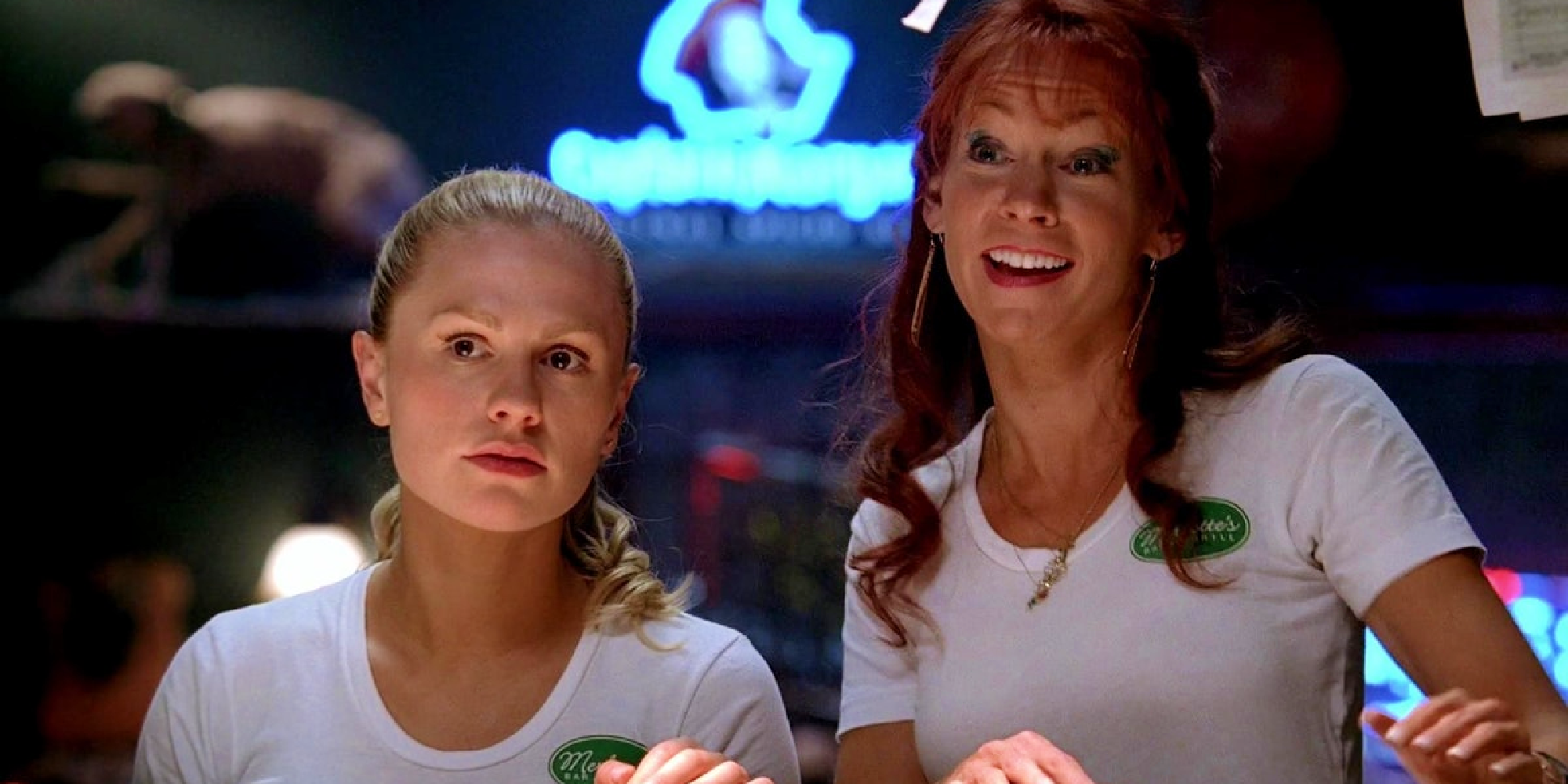There seems to be little development on HBO's announced True Blood reboot, but rather than being stuck in development hell, the project's delays could be a positive sign of its quality. Creating a new True Blood series presents several challenges, most notably how to appeal to fans of the original show while also providing a fresh take on the town of Bon Temps, Louisiana. However, while there is naturally impatience surrounding the True Blood reboot's slow production crawl, it's good news that the reboot creators are taking their time.
The original True Blood series, adapted from Charlaine Harris' "Southern Vampire Mysteries" novels, aired on HBO for seven seasons between 2008 and 2014. While the show received a mixed critical reception, it was one of HBO's highest-rated shows and garnered a large fanbase for its combination of campy supernatural romance and social commentary while also introducing Alexander Skarsgard to American audiences. A reboot was officially announced in December 2020, with series creator Alan Ball on board as an executive producer and Riverdale creator Roberto Aguirre-Sacasa as showrunner. However, there seems to have been little movement on the project since then. In a February 2022 interview with TVLine, HBO executive Casey Bloys said that the project had gone through multiple re-evaluations and is not "anything close to [getting a green light.]."
So far, it's not clear whether the new True Blood series will be a sequel to the original series, a prequel, or a re-telling of the same story. It's also unconfirmed which members of the original cast, if any will return. However, despite this lack of information, the fact that there have been so many revisions suggests that HBO wants to make sure that this is a story worth telling. After the disappointment of True Blood's hated ending, this project must be good enough to restore the excitement that many initially had for the series.
As a franchise, True Blood also presents some unique challenges. The original series had compelling characters and was a vampiric romp, but it also drew criticism for its plotting, particularly in the final two seasons where Ball wasn't in charge. As a result, a new version of True Blood would have to figure out how to carry over the original's strengths and address its weaknesses. Many fan-favorite characters were also killed off during True Blood, although given that the series is about the undead, this presents less of a roadblock than other franchise reboots. A reboot True Blood series following the same characters would have to deal with the glimpses of their future lives seen during the finale, whereas a series with new characters could struggle to appeal to fans of the original. The original True Blood also capitalized on the Twilight-era vampire craze, which has long since passed. While none of these issues are insurmountable, they require careful consideration, meaning it's good that the True Blood reboot is taking its time to get things right.
In this way, it is clear HBO doesn't want a True Blood reboot to meet the same negative response as Dexter: New Blood, Space Jam: A New Legacy, or other oft-maligned continuations and reboots. While it would be easy for HBO to make a quick cash-in with the True Blood name attached to it, they appear instead to be conducting a painstaking quality review process of the revived series. In this way, HBO has acquired a reputation for quality programming through a lengthy development process and involves numerous rewrites and re-considerations - meaning the True Blood reboot's extensive development should be seen as a positive sign for the project.


